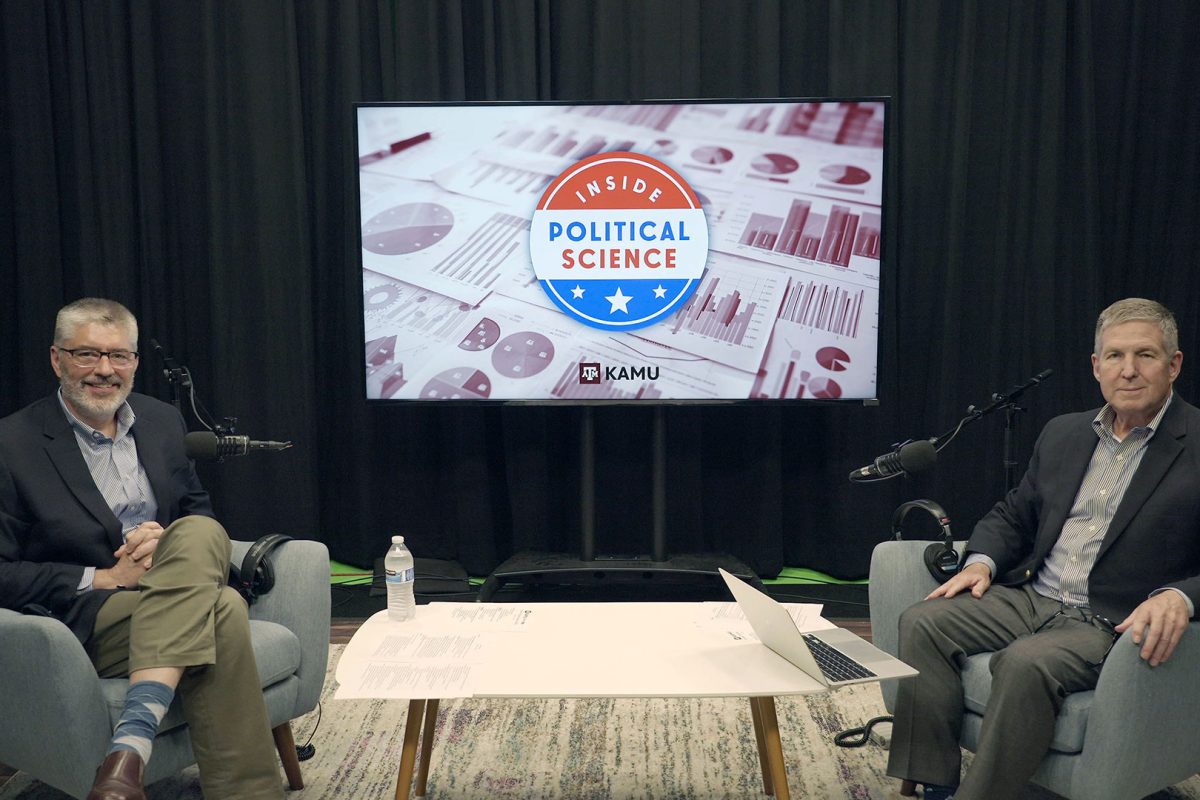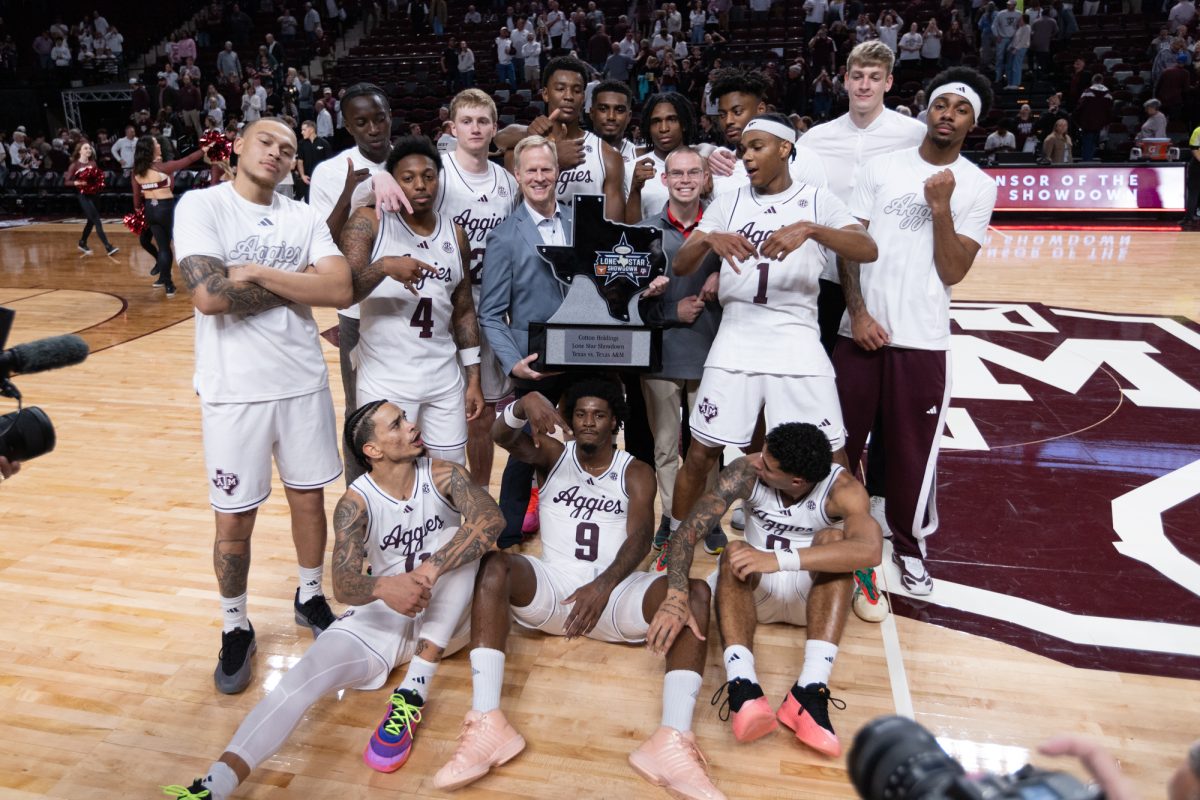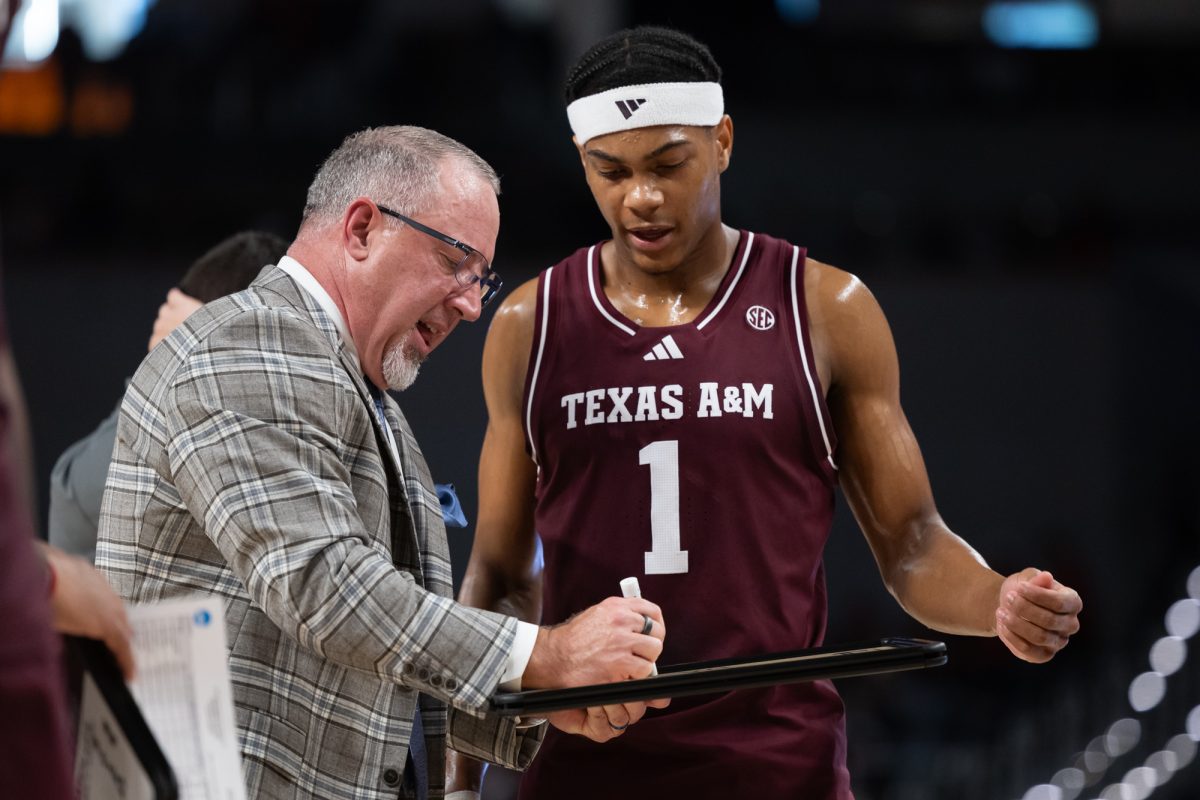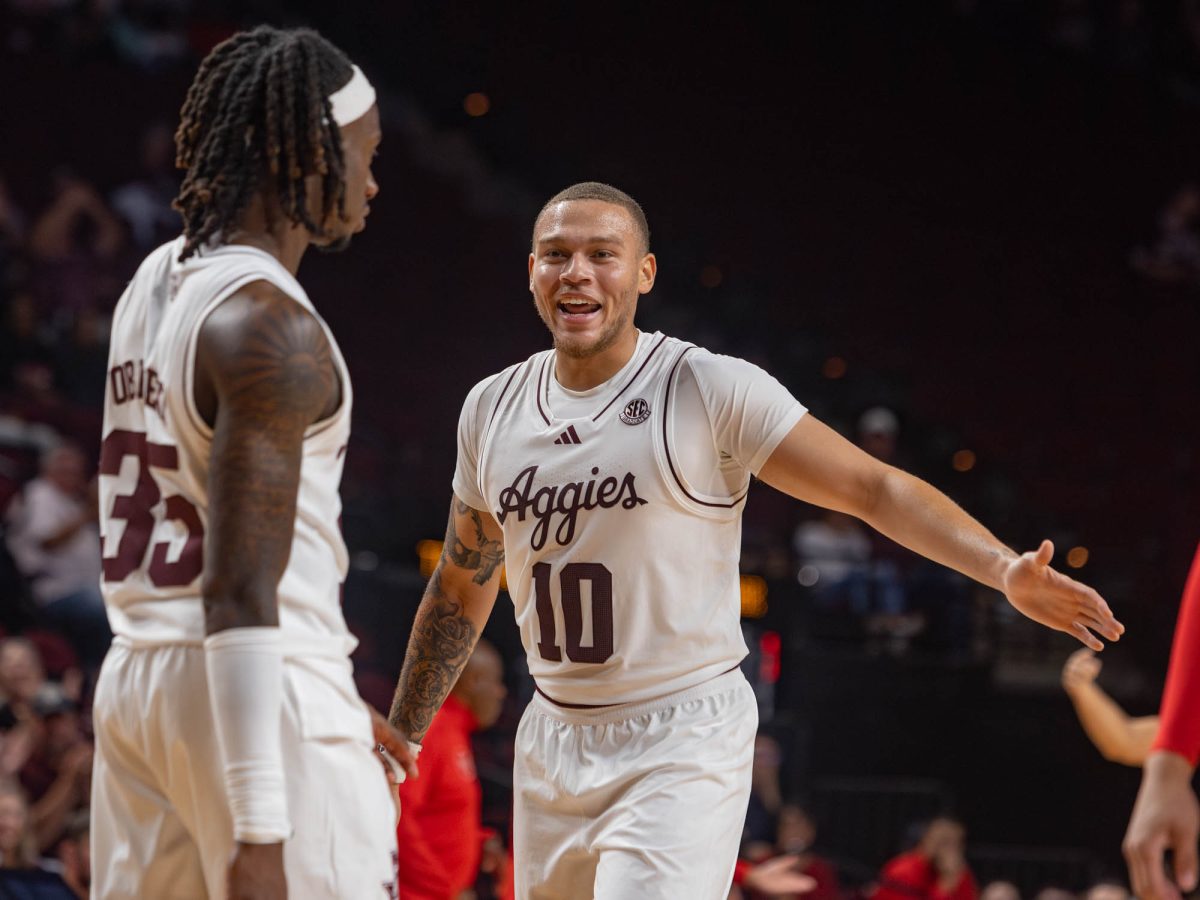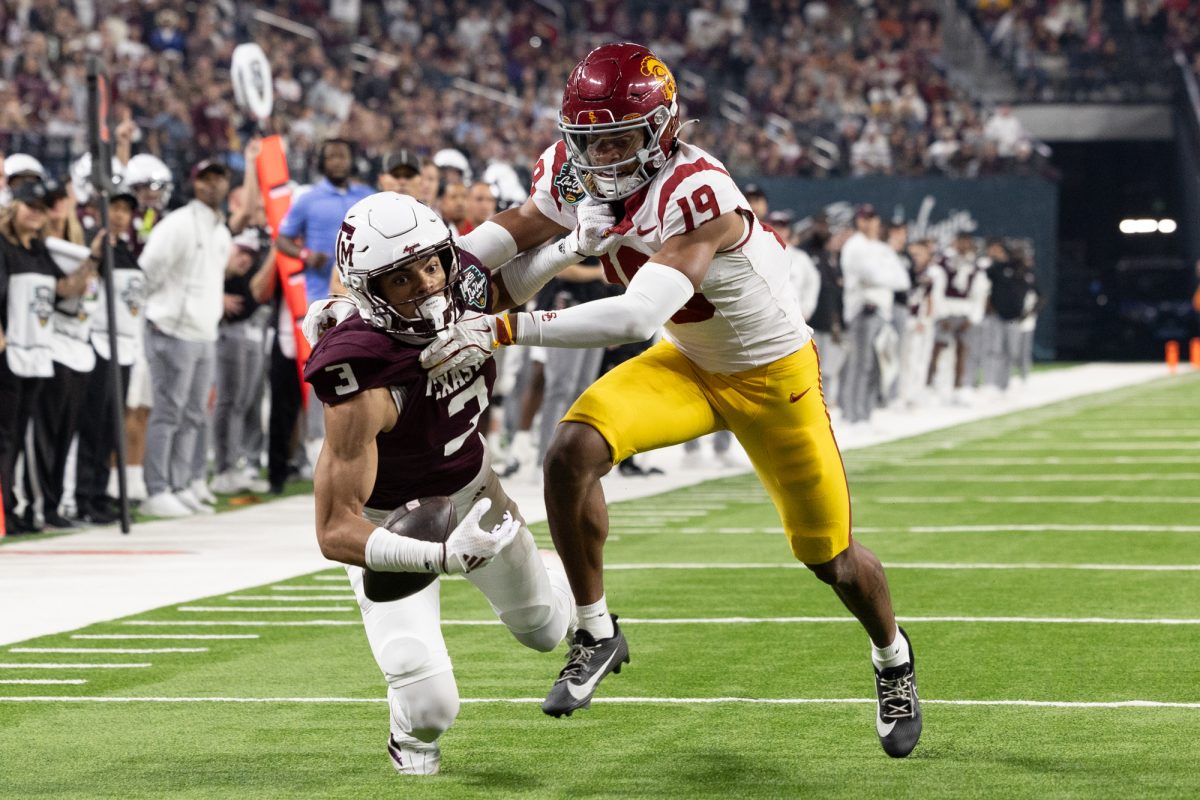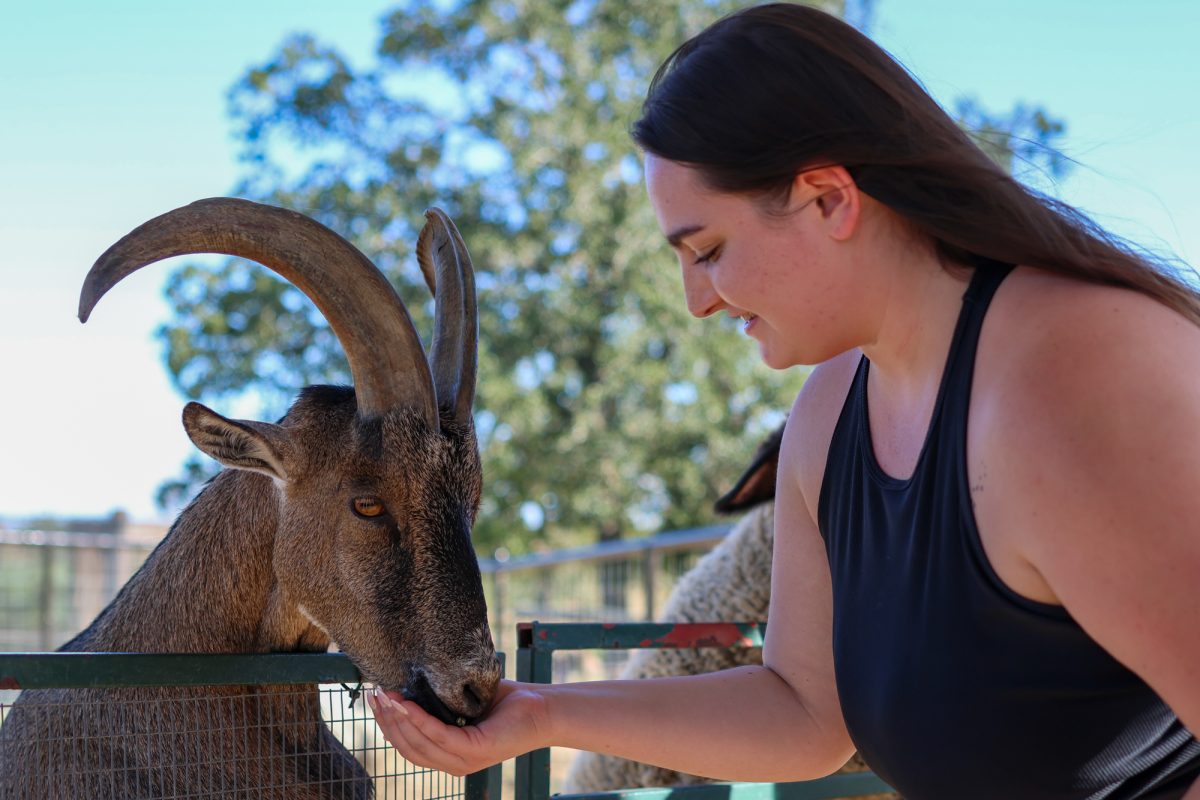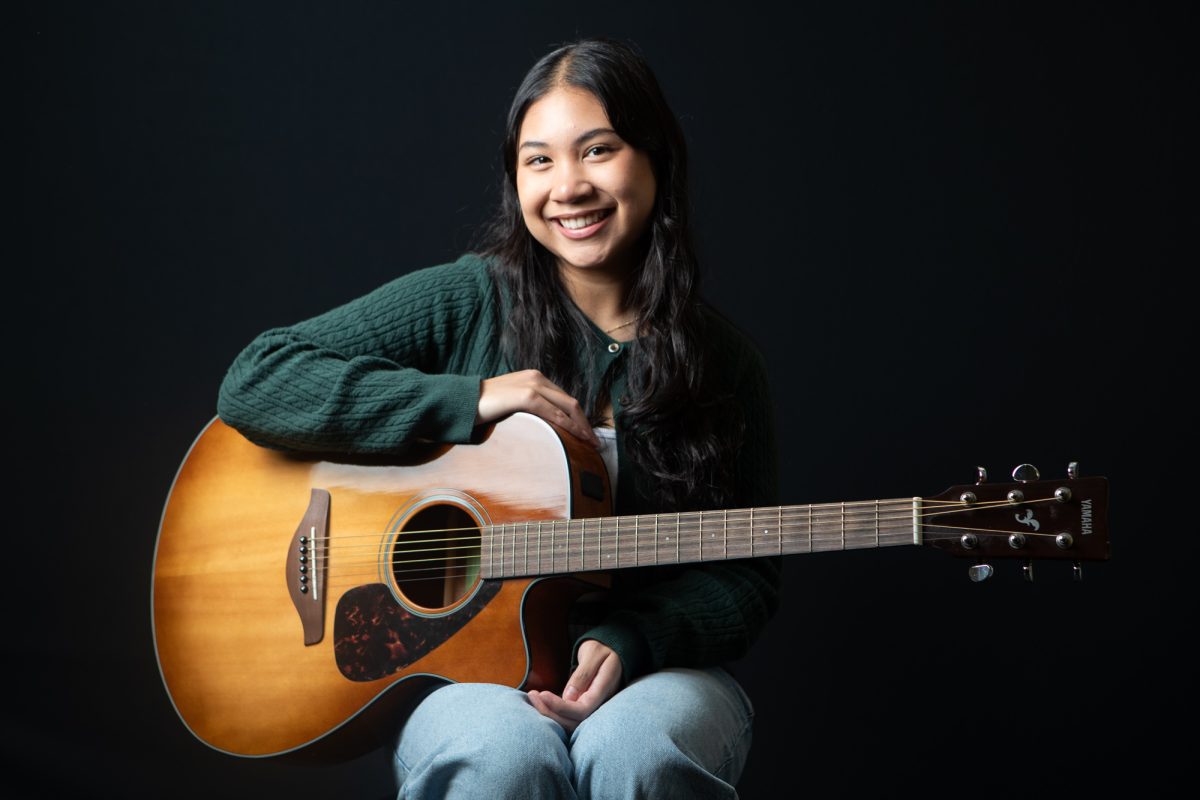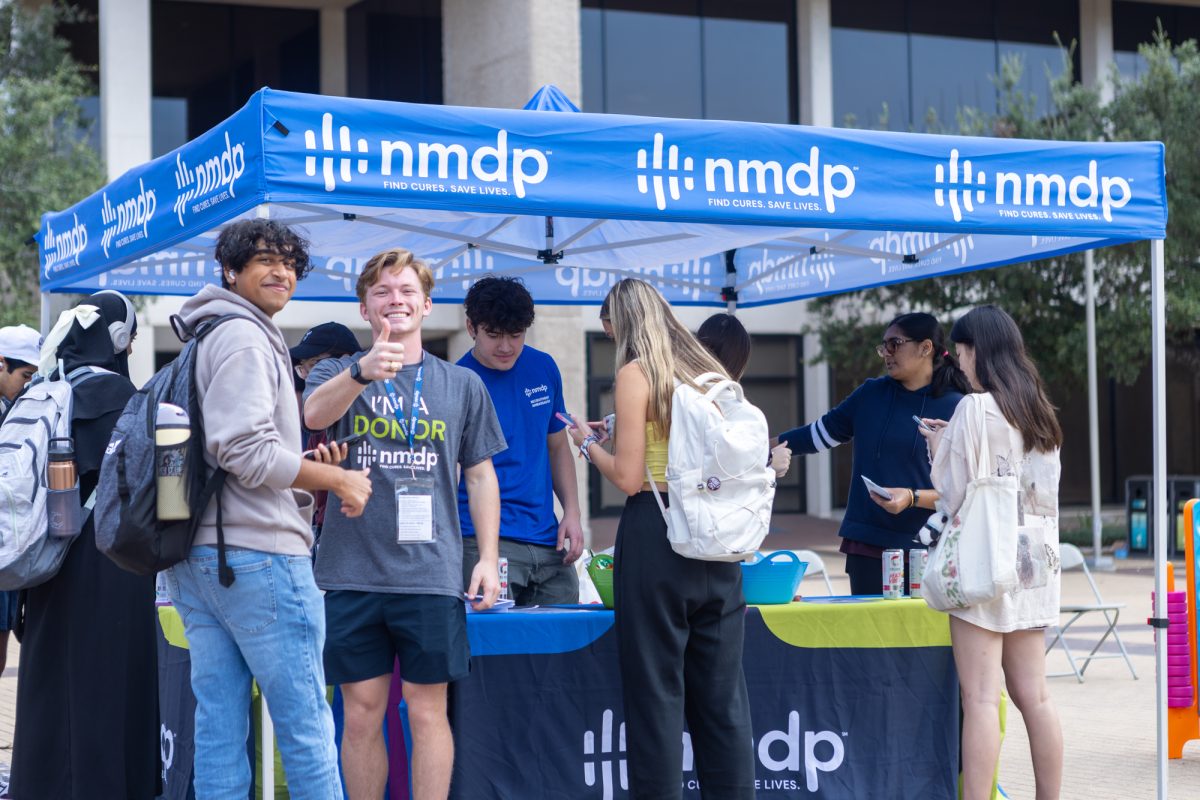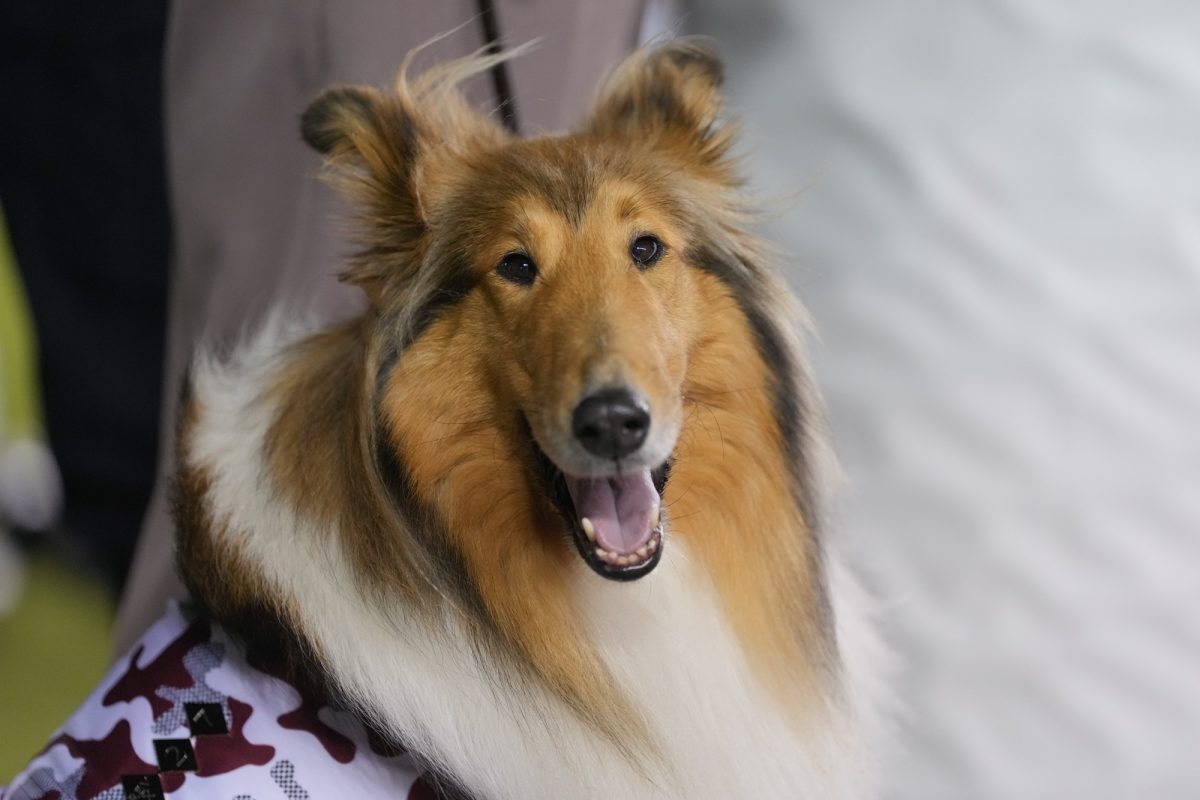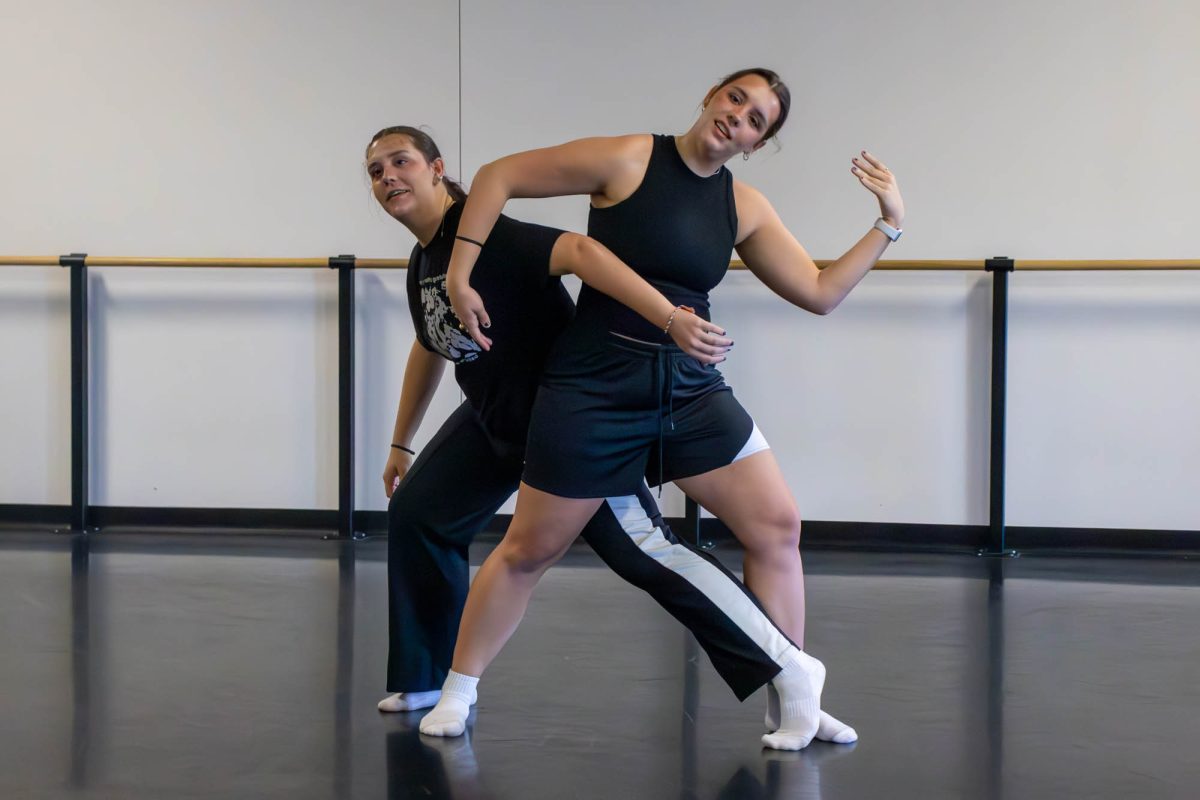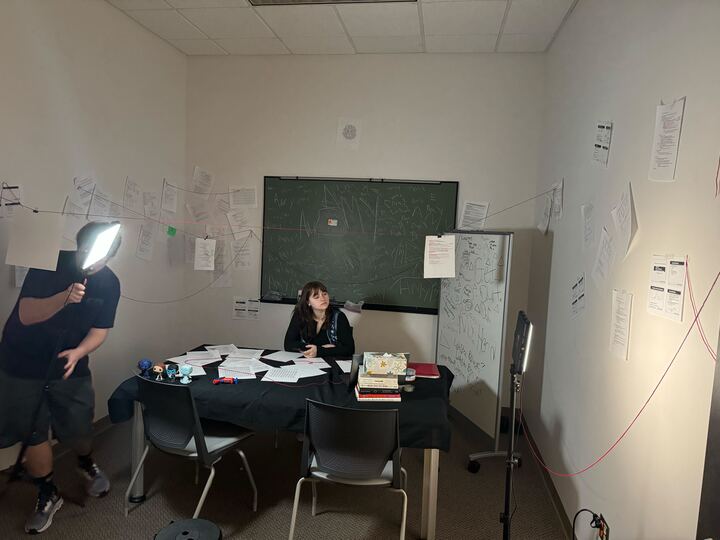When the first episode of the “Inside Political Science” audio and visual podcast was released in April, the presidential election was between then-incumbent President Joe Biden and then-former President Donald Trump.
The podcast is produced by Texas A&M’s KAMU, a local broadcasting station,` and is co-hosted by political science professors Kirby Goidel, Ph.D., and Charles Todd Kent, Ph.D. Both Goidel and Kent use their experience and passion in political science to bring informative conversations to listeners centered on the science of politics rather than opinion.
Since then, Trump survived two assassination attempts, Kamala Harris became the Democratic nominee and Republicans won the popular vote for the first time since 2004. The podcast hasn’t lacked material to discuss and breakdown, and even after the election the headlines continue to prompt conversations between these two experienced political scientists.
“I think the podcast is rooted in our deep love of politics and a belief that it’s important and that it matters,” Goidel said. “And that if people understand it better, then we can have a better political system.”
Throughout the presidential election, the co-hosts followed political headlines and voters’ interests by bringing on experts across both campus and the country to weigh in on their topics of expertise.
The first episode explains political polling and how to identify an accurate poll, the third breaks down campaign advertisements with a guest political science professor and the fifth sees two guest economic professors discuss the Federal Reserve. The latest of the podcast’s 19 episodes was released in December.
“I’ve always been very open to the idea that we shouldn’t be contained by a classroom in terms of talking about politics, that our role is civic education, and so what we should do is talk about politics whenever and wherever we can,” Goidel said. “And to try to take advantage of the opportunities that are there so that we can hopefully engage people and teach people and teach people about the political process and policy.”
The podcast digs deeper into policies and important topics for voters by bringing in expert guests from corresponding disciplines. Kent said that if someone walks away from listening to an episode and is able to talk to someone else about what they’ve learned, then the podcast has accomplished its goal.
“Our job is getting people to think through the nuances of politics and kind of below the surface that people may not have thought about,” Kent said. “And then by hearing from these experts who think about it every day, I think that really adds to the interest.”
As an undergraduate psychology student, Goidel remembered his political science professor challenging him to get involved in the democratic process,.
If they didn’t get involved, the professor said, somebody else would and would make decisions that could impact their lives.
“But I was more curious and taken aback by, ‘Wait, who are these people? Where do they come from? What do they believe?’” Kent said. “And so as someone with an interest in psychology, and then with politics, adding layering politics on top of it, I’ve just been sort of fascinated with how people think about the world ever since.”
Growing up, Kent was often excited to follow political campaigns, largely due to his father and his job as a high school government teacher.
Kent later entered politics, working to help candidates get elected to office on and off for roughly 20 years.
“My first campaign was the George H.W. Bush campaign in 1988, and so, you know, I enjoyed that so much,” Kent said. “And then later on, I went back and got a Ph.D. in political science.”
Goidel said that in order to talk about politics productively, it requires intellectual curiosity — namely, don’t try to “win the argument.”
“Try to figure out where they are and why they think the way they do,” Goidel said. “Because I think most people are pretty fascinating. And I think even the people that we strongly disagree with, I strongly disagree with, still have really interesting views about the world. And sometimes I think they’re interesting and wrong and contradictory, but sometimes I’m like, ‘Wow, I’ve never thought about it that way.’”
Kent said he can’t think of a subject more enjoyable than political science in today’s academic environment, as students have been highly interested in discussing politics.
“I find it to be wonderful to be in the classroom with students,” Kent said. “One time this year, I was a lecturer in a class called BUSH 141, which we talked about democracy and civic engagement. And so we took our podcast actually to the classroom and did it with the students, and they were very interested to talk about and to express their views and those types of things.”



